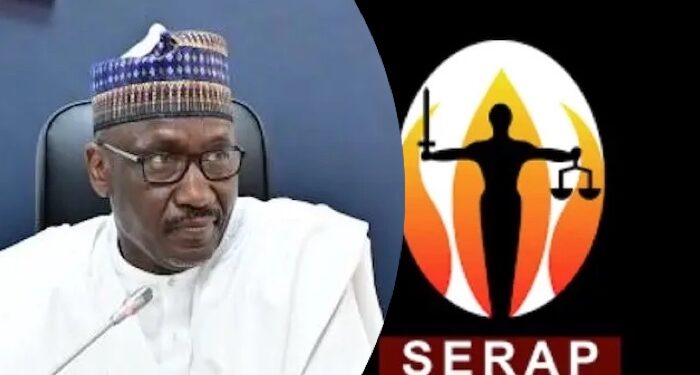The Socio-Economic Rights and Accountability Project (SERAP) has called on Mele Kyari, the Group Chief Executive Officer of the Nigerian National Petroleum Company (NNPC), to account for over N825 billion and $2.5 billion in alleged missing funds earmarked for refinery rehabilitation and other related expenditures. These funds were flagged in the 2021 annual report released by the Auditor General of the Federation on November 27, 2024.
In a letter dated January 4, 2025, SERAP urged Kyari to identify those responsible for the missing funds and to ensure they are handed over to the Independent Corrupt Practices and Other Related Offences Commission (ICPC) and the Economic and Financial Crimes Commission (EFCC). The organization also proposed a formal invitation for former President Olusegun Obasanjo to visit the country’s refineries, including the Port Harcourt and Warri facilities, alongside representatives from the EFCC and ICPC, to oversee and monitor operations.
Calls for Transparency and Accountability in NNPC’s Finances
SERAP’s Deputy Director, Kolawole Oluwadare, emphasized that the public’s trust in NNPC had been violated due to these allegations. According to the Auditor General’s report, the missing funds included:
- N825 billion intended for refinery rehabilitation, reportedly deducted from crude oil and gas sales between 2020 and 2021.
- $2.5 billion for various operational costs, including pipelines maintenance and management.
- Over N343 billion from domestic crude sales, misallocated for unapproved maintenance costs.
- Over N83 billion in miscellaneous income from joint venture operations, withdrawn from the CBN/NNPC sinking fund.
- Over N204 billion in unjustified deductions from 2021 oil royalties owed to the Department of Petroleum Resources (DPR).
The report also highlighted failures in accounting for significant sums from other areas, such as $2 billion in uncollected oil royalties and N48 billion in outstanding royalties from oil companies.
SERAP’s Urgent Appeal for Action
In the letter, SERAP stressed that the alleged mismanagement of these funds has not only breached Nigeria’s national anti-corruption laws but has also stifled the country’s economic development, deepened poverty, and limited opportunities for millions of Nigerians.
“The NNPC’s failure to account for these funds undermines the nation’s financial integrity,” the letter stated. “We urge you to take immediate action to recover these misappropriated funds and remit them to the Federation Account, as stipulated by the Nigerian Constitution and the country’s international obligations.”
The organization has given Kyari a seven-day ultimatum to respond and initiate the necessary steps to investigate and recover the missing funds. Should there be no response, SERAP warns it will consider legal action to compel NNPC’s compliance.
Serious Allegations Amid Calls for Reform
SERAP’s concerns are echoed by the findings of the Auditor General, which suggest that these missing funds may have been misappropriated or are unaccounted for, further exacerbating Nigeria’s financial woes. The Nigerian government has previously vowed to tackle corruption and improve transparency, but reports like this highlight ongoing challenges within key institutions like NNPC, which plays a central role in the country’s oil industry.
In response to these findings, SERAP has reiterated the importance of enforcing accountability in the management of public funds and the need for robust measures to ensure such issues do not continue.
Moving Forward: The Role of Former President Obasanjo and Key Agencies
SERAP’s recommendation for former President Obasanjo’s involvement in monitoring the refineries underscores the importance of independent oversight to prevent further corruption in Nigeria’s oil sector. As the country seeks to recover from years of mismanagement and systemic issues, calls for greater scrutiny and transparency have intensified.
The proposed involvement of the EFCC and ICPC further highlights the need for collaborative efforts among regulatory bodies to address the ongoing crisis and ensure that the resources meant for the nation’s development are used appropriately.


